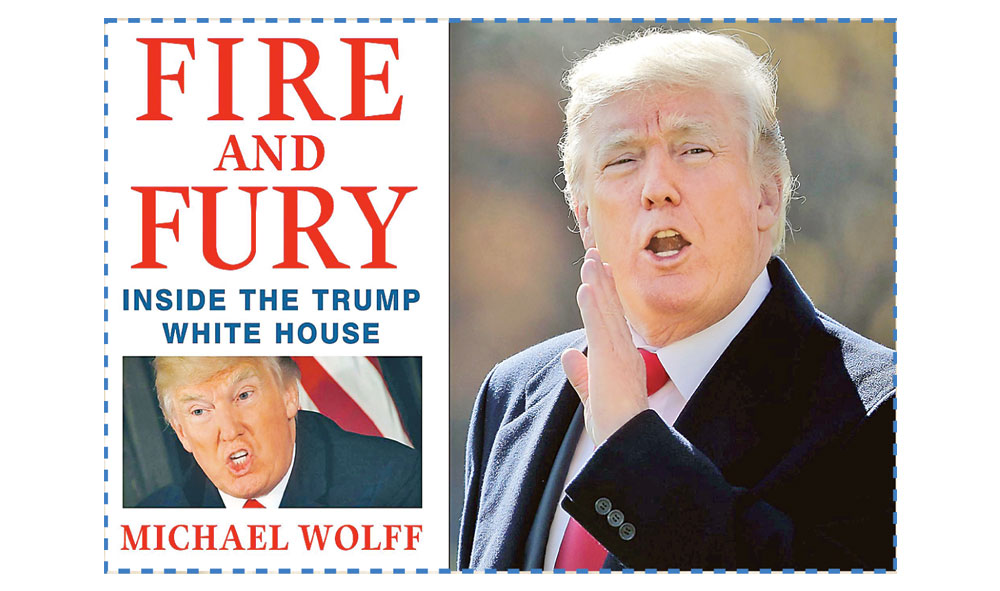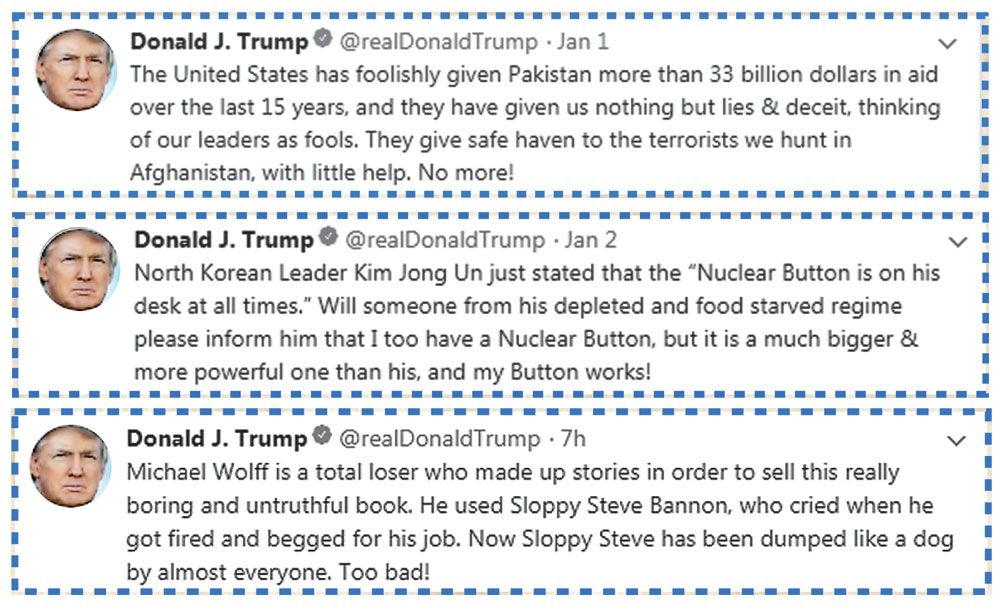MUSLIMS ENTER AMERICAN POLITICS
- 10 Nov - 16 Nov, 2018

I was planning to write about something else this week, but then Donald Trump tweeted about Pakistan on New Year’s Day.
I don’t appreciate having to do anything as a result of anything Trump does or says or tweets. But the man is President of the United States, whether we like it or not – I don’t – so unfortunately we have to try to understand what effect his words and actions might have on those of us who live in the real world, whether in America, in Pakistan, or anywhere else affected by the (as I see it) permanently damaged relationship between the two countries’ establishments.
It’s important to distinguish between countries’ establishments and their people. Or, at least, I think drawing such a distinction is important enough that I’ve devoted my writing career to it. As a corollary, fairly early on I established for myself a personal policy of never recommending policy. That’s not the kind of writer I want to be.
I’m reminded of a talk I was invited to give in November 2015 at the Library of Congress, in which I referred to Washington, D.C. as “an industry town, swarming with policymakers and policy wonks, the way Detroit used to swarm with automotive engineers and middle managers, and the way my home city of Seattle today swarms with software engineers and middle managers,” and as an “abstraction that consumes the time and energy of so many people in this town. Policies come and go,” I continued, “And part of the problem with a policy-driven mentality is that it presumes stasis, or at least some fixed fulcrum of power and interest, that really doesn’t exist in the real world.”
Policies, regimes, and even empires come and go, but human experience and meaning remains constant, in the sense that they remain the only things that matter. What I became a writer to do was to meet people wherever I find them and listen to their stories.

“The good news,” I claimed to that Library of Congress audience more than two long years ago, “is that it’s beginning to become obvious to us that the real world is not subject to control by such contrivances as United States policy and Hollywood endings.” For Pakistan now the takeaway might be that it doesn’t really matter – at least not in any “normal” way – if Trump tweets whatever he tweets. That might even be more true than we can know, since as I write this the extraordinary revelations from Michael Wolff’s explosive book Fire and Fury are starting to have an impact.
We’re living in a time of radical uncertainty. Today’s world is pregnant with radically novel and unpredictable reconsiderations and realignments. When I saw the headline about Trump’s claim that his nuclear button is bigger than Kim Jong-un’s, juxtaposed on The Guardian with one about how South Korea was opening high-level talks with North Korea, a notion of the sort that used to be the stuff of fanciful novels and movies entered my brain, insisting that I take it seriously: What if the two Koreas decided, one fine day, to surprise the world by simply reunifying under Chinese protection, without even consulting the United States?
And indeed, given Trump’s reckless belligerence, why would Koreans consult his regime about that or anything else anymore? Mind you, I’m not advocating Chinese hegemony over a reunified Korea. The likely fallout from such a phase change brings to mind something a mentor of mine used to say about the Berlin Wall: that if it ever went away, people would miss it. In any case, I’ve never been to Korea and don’t know much about that part of the world (except that it’s uncomfortably close, as the nuclear missile flies, to my home in Seattle). And, remember, I don’t recommend policy or political action.
But the scenario struck me as weirdly not-implausible or at least no more implausible than Donald Trump becoming President of the United States. And if the two Koreas collaborating to thumb their joint nose at Trump’s America is not implausible, what else might be not implausible? The answer to that question is what we’re fumbling toward in the globe-encircling fog of our historical moment.
Trump’s Pakistan tweet is appalling, of course. But it’s helpful in exposing just how fragile – not to say outdated and irrelevant – erstwhile categories and relations have become. His election victory had the same quality: it’s a horrible circumstance to have to deal with, but we’re dealing with it because the system (along with both major American political parties) was already rotten before the election. Thus it’s unhelpful to blame everything bad in the world on Trump.
It’s such scenarios that, like it or not, we have to be willing to start imagining. And this is relevant to Pakistan too. Trump tweeted what he tweeted about Pakistan because he knew that only high-minded humanitarians and liberals would disagree with his churlish sentiment. And high-minded liberalism doesn’t have much traction in America at the moment. But, like all Koreans, all Pakistanis know that the alternative global hegemon in today’s world is China. And the problem for all of us is that high-minded liberalism doesn’t seem to have much traction in China either.
One thing I’m not willing to be is sanguine about where the world is headed. It’s foolish to mumble can’t about “politics as usual”. There is no such thing anymore. And there are many alarming possibilities in the air that are no more implausible than what has just happened to ring in the new year: the President of the United States tweeting provocations at Pakistan and North Korea within days of each other. Or the President of the United States being Donald Trump in the first place.
COMMENTS
dhruva commented 6 years ago